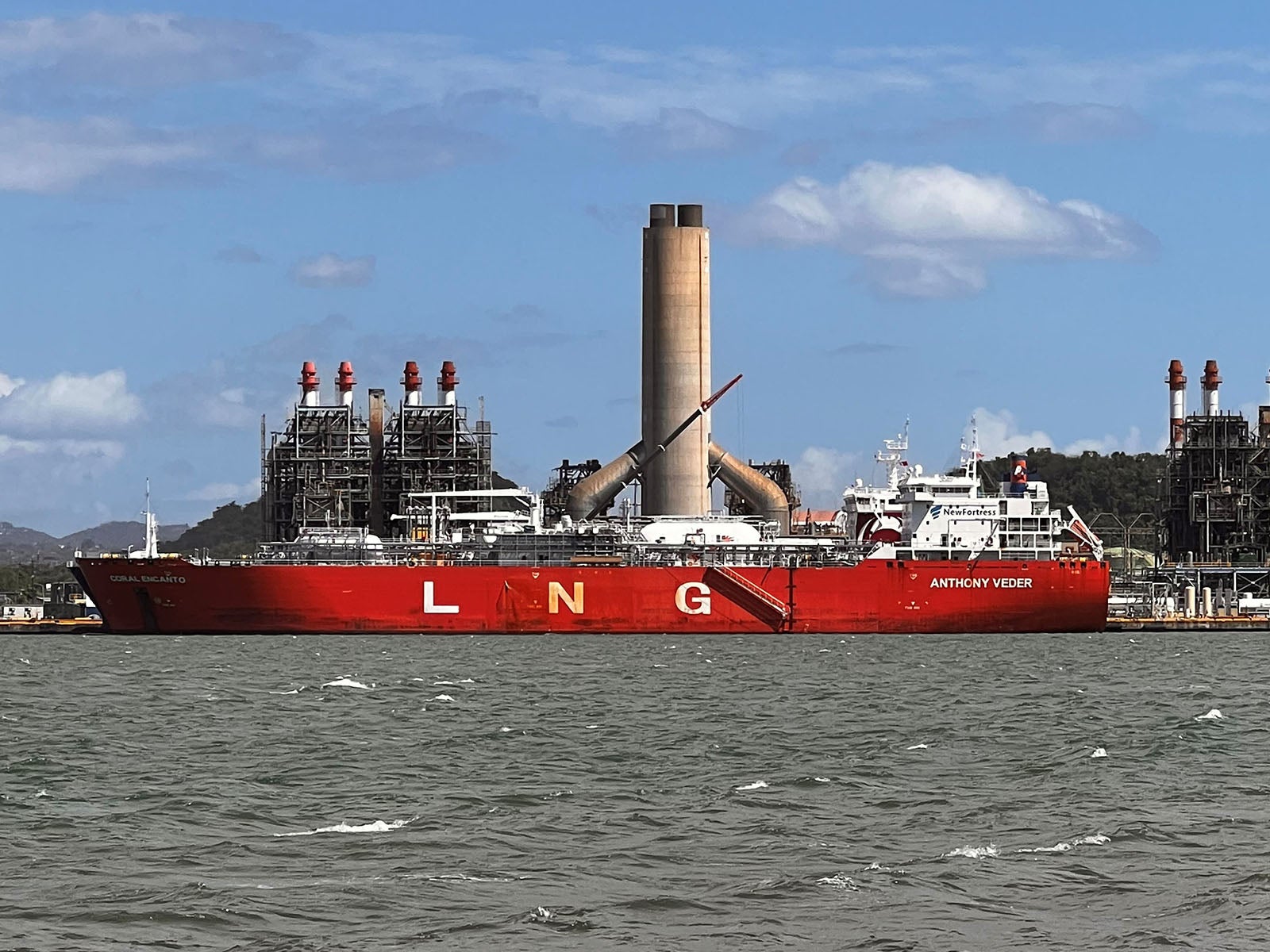Puerto Rico’s Grassroots Fight to Stop an Illegal Methane Gas Expansion
Communities in San Juan are battling to stop a rogue gas company's efforts to push dangerous methane gas on the people of Puerto Rico.

This page was published a year ago. Find the latest on Earthjustice’s work.
In San Juan, Puerto Rico, a potentially explosive methane gas terminal sits less than a quarter-mile from residents’ homes. The people living closest to the terminal breathe in toxic air pollution from methane combustion leaks and exhaust from the terminal’s truck and ship traffic. Despite these grave environmental risks, the company that built the project never consulted the surrounding community before starting construction in 2018.
Not only did the energy company New Fortress Energy and its subsidiary NFEnergia build the gas terminal without notifying the surrounding community, but they have also been operating the terminal since 2020 without a legally required permit from the Federal Energy Regulatory Commission (FERC). Yet FERC has refused to shut down the facility. Instead, the Commission recently allowed the company to expand operations.
In 2023, FERC allowed NFEnergía to modify the terminal by installing a gas pipeline to fuel two new gas-fired generators, without first undergoing an environmental review, safety risk analysis, or even a public hearing. These are violations of both the Natural Gas Act and the National Environmental Policy Act.
On Oct. 11, Earthjustice intervened, launching a legal challenge to reverse FERC’s decision.
Representing a coalition of Puerto Rico-based environmental, community and civil society groups including El Puente de Williamsburg, Enlace Latino de Accion Climática, and Sierra Club de Puerto Rico, Earthjustice attorneys filed a petition to vacate FERC’s approval, which would shut down the pipeline and safeguard the health and safety of San Juan communities.
FERC is responsible for evaluating proposals for all liquified methane gas infrastructure projects and interstate methane gas pipelines. It is required by the National Environmental Policy Act (NEPA) to review the environmental and safety impact on communities and landowners living near the proposed infrastructure. FERC must also hear directly from residents when a project is proposed to be built in their communities before ultimately determining whether the pipeline is consistent with the public interest.
Impacted communities across San Juan believe the new gas pipeline and the connected terminal not only jeopardizes their health and safety, but also undermines Puerto Rico’s transition to a 100% distributed renewable energy system. Yet they never got a chance to make that argument because FERC allowed construction and operation of the pipeline without any public input. No one in the surrounding communities was notified or consulted about this project — even though the potentially explosive terminal sits less than a quarter mile from residents’ homes.
FERC ignored its legal responsibilities, allowing the pipeline to go forward without any consideration of its environmental or safety impacts on nearby communities, waterways, or the climate.
In response, Earthjustice led a chorus of public calls on FERC to follow the law and hold in-person public meetings in Puerto Rico with a Spanish translator present, eliminating language barriers to participation.
The public pressure worked, and at a packed hearing room in San Juan on November 18, community members gave firsthand accounts of the air pollution, noise pollution, traffic, and safety risks that they’ve been forced to endure over the past four years. Attendees also raised concerns about the global threats that the buildout of the Liquified Natural Gas (LNG) terminal poses, urging the commission to assess its true climate impacts by comparing its lifecycle emissions to zero-emissions clean energy from more affordable, more resilient rooftop solar and battery storage systems.
The commission is also accepting written public comment until November 25.
The Florida regional office wields the power of the law to protect our waterways and biodiversity, promote a just and reliable transition to clean energy, and defend communities disproportionately burdened by pollution.